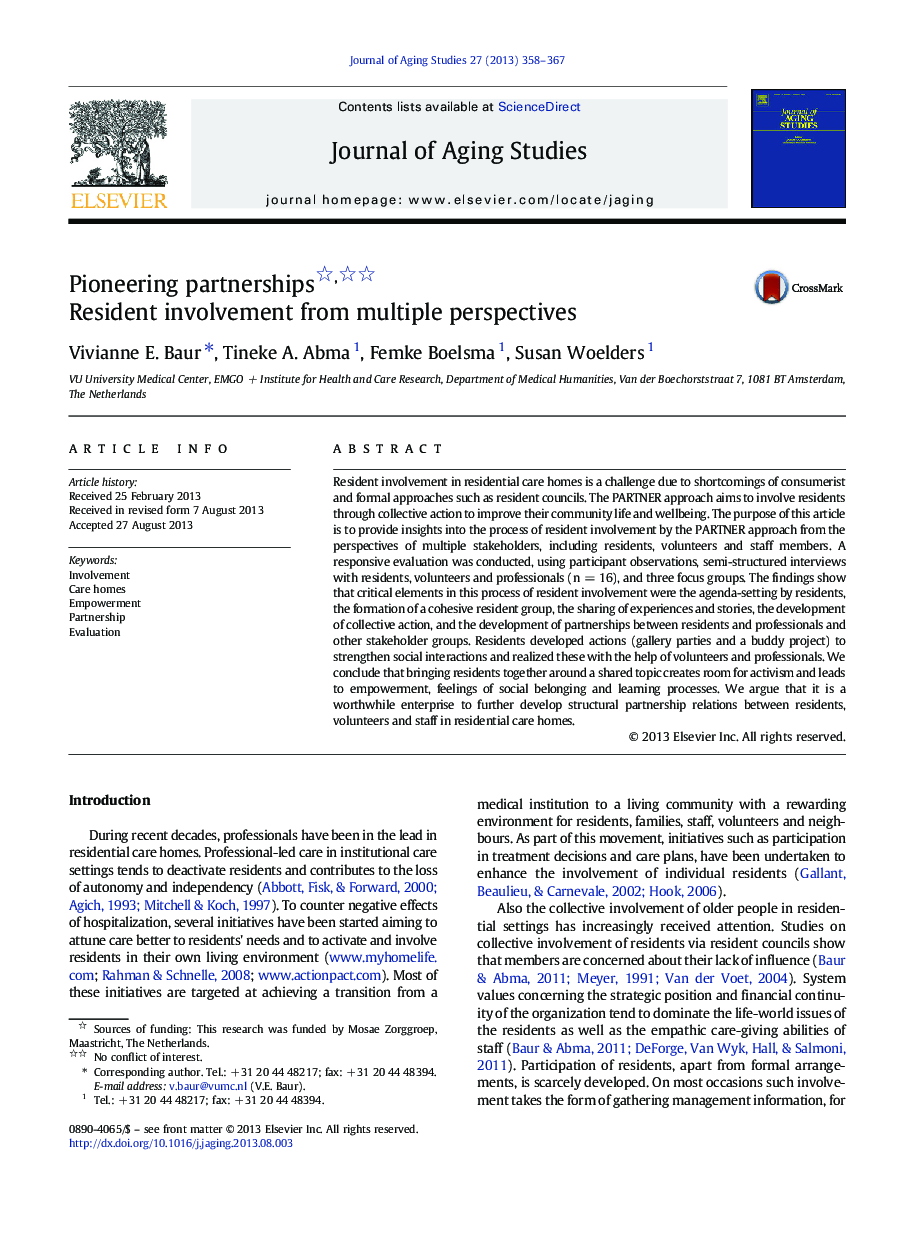| Article ID | Journal | Published Year | Pages | File Type |
|---|---|---|---|---|
| 10513176 | Journal of Aging Studies | 2013 | 10 Pages |
Abstract
Resident involvement in residential care homes is a challenge due to shortcomings of consumerist and formal approaches such as resident councils. The PARTNER approach aims to involve residents through collective action to improve their community life and wellbeing. The purpose of this article is to provide insights into the process of resident involvement by the PARTNER approach from the perspectives of multiple stakeholders, including residents, volunteers and staff members. A responsive evaluation was conducted, using participant observations, semi-structured interviews with residents, volunteers and professionals (n = 16), and three focus groups. The findings show that critical elements in this process of resident involvement were the agenda-setting by residents, the formation of a cohesive resident group, the sharing of experiences and stories, the development of collective action, and the development of partnerships between residents and professionals and other stakeholder groups. Residents developed actions (gallery parties and a buddy project) to strengthen social interactions and realized these with the help of volunteers and professionals. We conclude that bringing residents together around a shared topic creates room for activism and leads to empowerment, feelings of social belonging and learning processes. We argue that it is a worthwhile enterprise to further develop structural partnership relations between residents, volunteers and staff in residential care homes.
Related Topics
Health Sciences
Medicine and Dentistry
Geriatrics and Gerontology
Authors
Vivianne E. Baur, Tineke A. Abma, Femke Boelsma, Susan Woelders,
